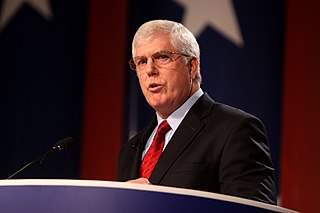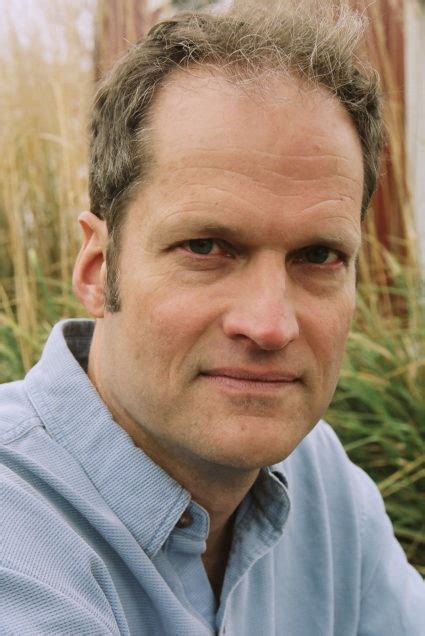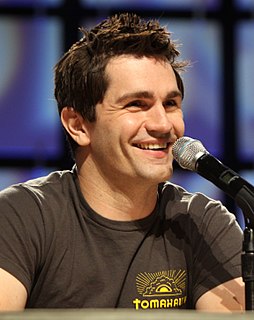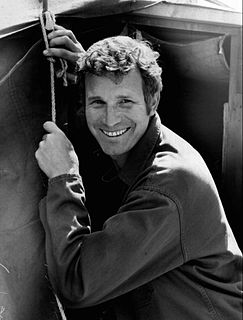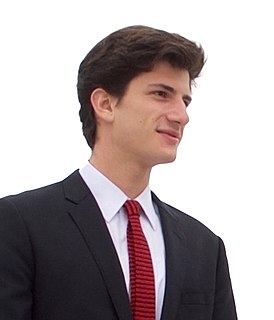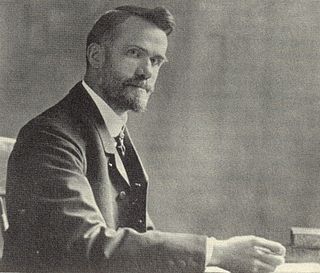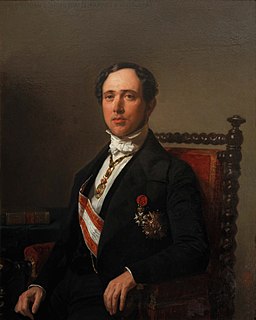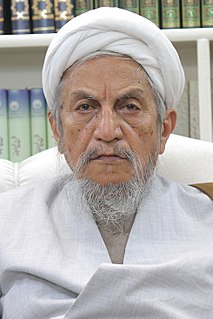Top 1200 Religious Wars Quotes & Sayings - Page 11
Explore popular Religious Wars quotes.
Last updated on December 23, 2024.
I do believe that people of all religions have a right to build edifices or structures or places of religious worship or study where the community allows them to do it under zoning laws and that sort of thing, and that we don't want to turn an act of hate against us by extremists into an act of intolerance for people of religious faith.
My visual landscape as a child was the inside of a lot of these old churches. And the Baroque drama of the things was what I was first engaging with artwise. I'm much more attracted to the aesthetic of religious iconography than the actual religious side. The passion and the blood and the violence and the gaudy side of it I find really fascinating.
I don't know if I'm the most religious guy, but I think I'm a spiritual man, and these are the things I think about a lot. In terms of the film, I think 'The Grey' is very much a non-denominational kind of film. I don't think it's something that relies on a particular religious bent to tell the story.
The religious stories, the religious truths, the spiritual principles - obviously, they don't change. But as you get older and you experience more, you recognize the applicability, the profundity, and the fundamental truths of spiritual principles in ways that you couldn't when you simply were living a less dimensional life.
Obi-Wan understands that the best thing he can do is contribute something positive to the world around him and then to leave. And if he does that, he will in some ways live forever because the good influence of what he did will be felt. It may sound corny but that's kind of the way I feel about contributing to Star Wars characters. It isn't about me. It's about the story. It's about the mythology of Star Wars and the moral implications of that mythology.
I think everybody should see ('The Star Wars Holiday Special') to realize how bad something can be. There are some cool things in there, but it's two hours long, and you could probably cut it down to about two minutes and twelve seconds of cool material. The animated Boba Fett sequence is great, and there's some cool stuff, but overall, the whole format of a variety show in the 'Star Wars' universe is just a train wreck.
Since Jimmy Carter, religious fundamentalists play a major role in elections. He was the first president who made a point of exhibiting himself as a born again Christian. That sparked a little light in the minds of political campaign managers: Pretend to be a religious fanatic and you can pick up a third of the vote right away. Nobody asked whether Lyndon Johnson went to church every day. Bill Clinton is probably about as religious as I am, meaning zero, but his managers made a point of making sure that every Sunday morning he was in the Baptist church singing hymns.
In matters of religion, I have considered that its free exercise is placed by the Constitution independent of the powers of the general government. I have therefore undertaken on no occasion to prescribe the religious exercises suited to it; but have left them as the Constitution found them, under the direction and discipline of State or Church authorities acknowledged by the several religious societies.
Let me say that I don't see any conflict between science and religion. I go to church as many other scientists do. I share with most religious people a sense of mystery and wonder at the universe and I want to participate in religious ritual and practices because they're something that all humans can share.
It's not greed and ambition that makes wars--it's goodness. Wars are always fought for the best of reasons, for liberation or manifest destiny, always against tyranny and always in the best interests of humanity. So far this war, we've managed to butcher some 10,000,000 people in the interest of humanity. The next war, it seems we'll have to destroy all of man in order to preserve his damn dignity.
Most religious people in America fully embrace science. So the argument that religion has some issue with science applies to a small fraction of those who declare that they are religious. They just happen to be a very vocal fraction, so you got the impression that there are more of them than there actually is.
Math . . . music .. . starry nights . . . These are secular ways of achieving transcendence, of feeling lifted into a grand perspective. It's a sense of being awed by existence that almost obliterates the self. Religious people think of it as an essentially religious experience but it's not. It's an essentially human experience.
Kennedy believed in religious liberty and the separation of church and state. He did not believe in the right of elected officials to impose their religious views on others. He was the first Catholic ever elected president, and he spent much of the 1960 campaign defending his religion and assuring voters he would not take orders from the Vatican.
Menaced by collectivist trends, we must seek revival of our strength in the spiritual foundations which are the bedrock of our republic. Democracy is the outgrowth of the religious conviction of the sacredness of every human life. On the religious side, its highest embodiment is the Bible; on the political side, the Constitution.
The casualties in the Civil War amount to more than all other wars - all other American wars combined. More people died in that war than World War II, World War I, Vietnam, etc. And that was a war for white supremacy. It was a war to erect a state in which the basis of it was the enslavement of black people.
A religious belief is not a statement about Reality, but a hint, a clue about something that is a mystery, beyond the grasp of human thought. In short, a religious belief is only a finger pointing to the moon. Some religious people never get beyond the study of the finger. Others are engaged in sucking it. Others yet use the finger to gouge their eyes out. These are the bigots whom religion has made blind. Rare indeed is the religionist who is sufficiently detached from the finger to see what it is indicating - these are those who, having gone beyond belief, are taken for blasphemers.
Actions which are conscious expressions of the turn-on, tune-in, drop-out rhythm are religious.The wise person devotes his life exclusively to the religious search - for therein is found the only ecstasy, the only meaning. Anything else is a competitive quarrel over (or Hollywood-love sharing of) studio props.
The great decisions of government cannot be dictated by the concerns of religious factions. We have succeeded for 205 years in keeping the affairs of state separate from the uncompromising idealism of religious groups and we mustn't stop now. To retreat from that separation would violate the principles of conservatism and the values upon which the framers built this democratic republic.
I believe that a religious conversion is the only way to stimulate the peoples of the industrialized nations to be willing to make sacrifices for the sake of esho funi (the oneness of self and environment). ... I wish the entire world would accept as an item of religious faith the concept of esho funi and its moral obligations.
To be prophets, in particular, by demonstrating how Jesus lived on this earth, and to proclaim how the kingdom of God will be in its perfection. A religious must never give up prophesising Let us think about what so many great saints, monks and religious men and women have done, from St Anthony the Abbot onward. Being prophets may sometimes involve making ruido [Spanish for noise]. I do not know how to put it Prophecy makes noise, uproar, some say 'a mess.' But in reality, the charism of religious people is like yeast: prophecy announces the spirit of the Gospel.
It is my hope that inter-religious and ecumenical cooperation will demonstrate that men and women do not have to forsake their identity, whether ethnic or religious, in order to live in harmony with their brothers and sisters. If we are honest in presenting our convictions, we will be able to see more clearly what we hold in common.
That is the kind of America in which I believe. And it represents the kind of Presidency in which I believe - a great office that must neither be humbled by making it the instrument of any one religious group nor tarnished by arbitrarily withholding its occupancy from the members of any one religious group. I believe in a President whose religious views are his own private affair, neither imposed by him upon the Nation or imposed by the Nation upon him as a condition to holding that office.
I believe that God is the source of all the universal, timeless principles. And to Him, I give all the credit and the glory. However, to a person who is not religious, I believe they can live to the highest level of their conscience and develop spiritual intelligence that surpasses most people, including many religious people, who profess but do not practice.
I believe we can, and must, strike a balance between our shared American values of religious liberty and freedom from discrimination. My concerns lie with the possible consequences of politically-driven legislation which claims to promote religious liberty but instead rolls back the legal protections held by LGBT Americans.
The beauty of religious mania is that it has the power to explain everything. Once God (or Satan) is accepted as the first cause of everything which happens in the mortal world, nothing is left to chance ... or change. Once such incantatory phrases as "we see now through a glass darkly" and "mysterious are the ways". He chooses His wonders to perform" are mastered, logic can be happily tossed out the window". Religious mania is one of the few infallible ways of responding to the world's vagaries, because it totally eliminates pure accident. To the true religious maniac, it's all on purpose.
Bill Maher is right to condemn religious practices that violate fundamental human rights. Religious communities must do more to counter extremist interpretations of their faith. But failing to recognize that religion is embedded in culture — and making a blanket judgment about the world’s second largest religion — is simply bigotry.
I have no religious belief myself, but I don't think we should fight about it. In particular, I think that we should not rubbish moderate religious leaders like the Archbishop of Canterbury because I think we all agree that extreme fundamentalism is a threat, and we need all the allies we can muster against it.
There are only two possible forms of control: one internal and the other external; religious control and political control. They are of such a nature that when the religious barometer rises, the barometer of [external, i.e., political control] falls and likewise, when the religious barometer falls, the political barometer, that is political control and tyranny, rises. That is the law of humanity, a law of history. If civilized man falls into disbelief and immorality, the way is prepared for some gigantic and colossal tyrant, universal and immense.
Total experiences, of which there are many kinds, tend again and again to be apprehended only as revivals or translations of the religious imagination. To try to make a fresh way of talking at the most serious, ardent, and enthusiastic level, heading off the religious encapsulation, is one of the primary intellectual tasks of future thought.
The leaders of the Pahlavi regime, in an attempt to forestall the rising tide of the Islamic revolutionary movement, were hard at work to cast doubt on the question of the Imam Khomeini's position as a Marja'a (a top religious authority) and in this way, undermine public faith in his academic, political and religious competence.
Religious-liberty protections are one way of achieving civil peace even amid disagreement. The United States is a pluralistic society. To protect that pluralism and the rights of all Americans, of whatever faith they may practice, religious-liberty laws are good policy. Liberals committed to tolerance should embrace them.




